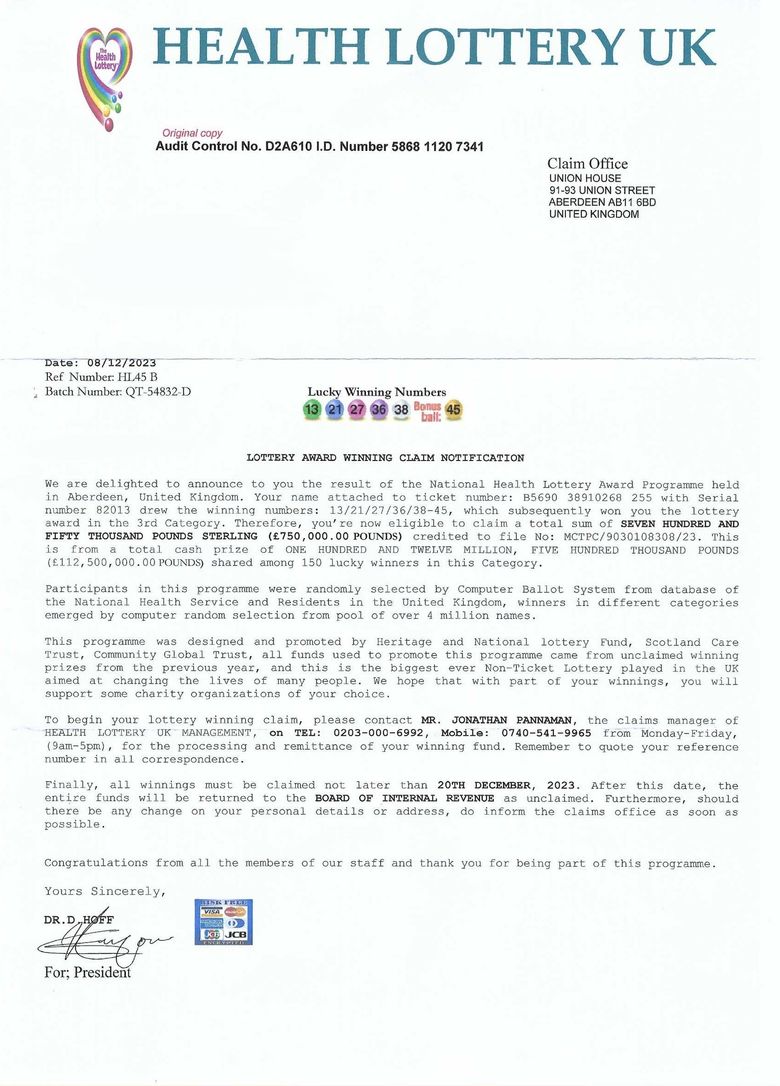Scammers are sending fake letters purporting to be from the Health Lottery.
The bogus letters deceitfully inform recipients of substantial winnings, sometimes up to £750,000, aiming to lure individuals into a well-orchestrated scam.
Consumer champion Which? has highlighted a significant increase in Google searches for these scam letters, indicating a widespread targeting of hopeful victims.
The scam involves sending out ‘lottery award winning claim notification’ letters that claim the recipients have won a large sum in the Health Lottery.
The Health Lottery, established in 2011 to support health-related causes across the UK, offers daily prize draws with a maximum cash prize of £100,000.
Crucially, it does not notify winners via letter, a fact that scammers are exploiting to their advantage.

[A scam letter impersonating the Health Lottery- Which?]
Warwickshire County Council’s Trading Standards Service issued a warning about this scam after local residents received letters claiming they had won £420,000.
The fraudulent letters are cunningly personalised, including fake ‘winning’ numbers and ticket numbers, and claim to originate from an Aberdeen address not associated with the Health Lottery.
They falsely state that winners were chosen through a ‘Computer Ballot System’ from a database of NHS and UK residents, further claiming affiliation with non-existent organisations related to the Health Lottery.
Victims are urged to call provided numbers within a short deadline to claim their ‘winnings,’ leading to a vishing scam where the fraudster attempts to extract personal and financial information over the phone.
The Health Lottery and consumer protection agencies are advising the public to be vigilant.
If you receive such a letter, it’s a scam, and you should report it immediately without responding to any of the contact details provided.
Letters that impersonate official lotteries and offer large prizes are typical examples of postal scams, designed to fool recipients into disclosing sensitive information.
Victims of the scam are encouraged to report the fraudulent letters to Royal Mail using their scam mail reporting service or Action Fraud.
For those who have suffered financial losses due to this scam, contacting their bank immediately is crucial.

